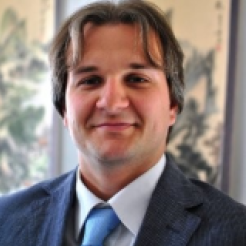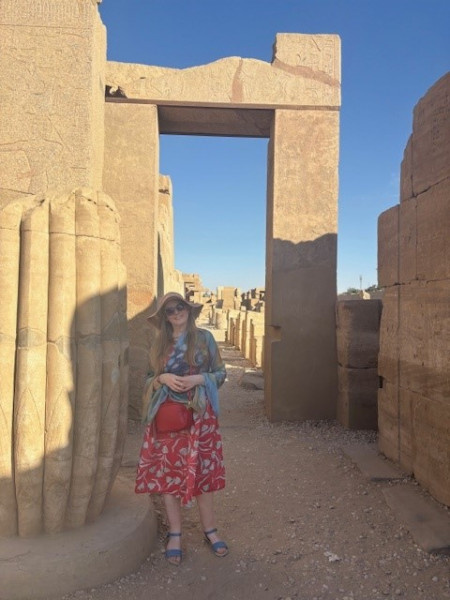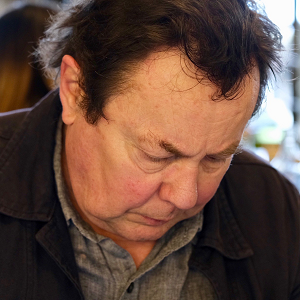Legal Histories
This research cluster provides an open and collaborative space for research into law and history. It takes a broad and interdisciplinary approach, with an emphasis upon diverse methodologies and theoretical approaches.
Events and activities
Our events and activities showcase our inclusive ethos. They bring together academics, archivists, PhD students, and independent researchers interested in legal histories. Most events are online and free to attend, ensuring accessibility for early-career, international, and unfunded participants. They include the Diversity, Dilemmas and Discoveries conference series:
- Researching the history of women in the UK’s legal professions
- Histories of legal education
- Legal history in the curriculum
- Legal histories, local histories
- Legal history in unexpected places
Our Law and history: sources and approaches workshop provides an accessible introduction to law and history research, and is also available online.
An edited collection developed from one of the conferences, Legal History in the Curriculum: Comparative perspectives, critical approaches and future directions (ed. C Derry and C Howells) will be published later this year.
To find out more about forthcoming events, email [email protected] to join our mailing list.
Areas of expertise
Members’ areas of expertise include:
- Gender and ethnicity in the legal professions
-
Legal education
-
Legal biography
-
Sexuality and criminal law
-
The nature and representation of Nazi law
-
Literature and legal history
-
Constitutional histories
-
Relationships between commonwealth, colonies, and empire
-
International space law
-
Charity law.
If you would like to contact the cluster, please email us.
Members

Marjan Ajevski
Prior to coming to the Law School, Marjan was a Visiting-Research Fellow at NYU's Program for International Relations, a post-doc for the PluriCourts Centre of Excellence at the University of Oslo, Norway, and a PhD researcher at the Central European University in Budapest, Hungary, where he has also been a visiting professor.

Thomas Cheney
Vice Chancellor’s Research Fellow, Northumbria University. Thomas is active in researching space law, policy and governance. His research focuses on planetary protection, space resources, and taking an environmental approach, grounded in legal geography and environmental humanities, to space governance.

Brett Crumley
Brett is interested in charity law and its relation to political economy. In 2024, he began a project on legal charity in early modern England and Wales, through the transition from feudalism to capitalism. Much of his work traces aspects of charity through its historical development. He appreciates this area of law partly because it is a good excuse to read historical documents and visit historical sites, looking for evidence of law’s social impact.

Emma Curryer
Senior Lecturer in Law. Particularly interested in crime and the concept of justice, Emma also has expertise in Egyptology and is using that to complement her knowledge of crime to consider the law in the context of antiquities. She is also considering the association between criminal law, criminal justice, archaeology, and literature. Part of that involves considering criminal justice through history and the lens of twentieth century literature, particularly the Golden Age of Detective Fiction and Agatha Christie. This extends to research into criminal justice in Ancient Egypt and the Middle East as seen through interpretation of archaeology and literature.

Paul Dale
PhD researcher. Paul’s research interests lie within the history of jurisprudence. He is undertaking postgraduate research with the Law School, focusing on the influence of dissenting religions upon classical legal positivism. Paul has previously lectured in Jurisprudence, International Law, and Human Rights, and currently teaches criminology and law with the OU.

Caroline Derry
Professor of Feminism, Law and History. Caroline’s research interests include feminist legal biography and the history of gender, sexuality and criminal law. Her monograph Lesbianism and the Criminal Law (Palgrave, 2020) explored the regulation of relationships between women from the seventeenth century to the present. She publishes on early women barristers, legal education, and feminist methodologies; current projects include 1885 and its long shadow: sexual offences in historical context, and lesbian resistance in the 1921 census.
.jpg)
Andrew Gilbert
Senior Lecturer in Law. Andrew’s research interests include the history of modern anti-racist movements in Britain and their intersection with law. His current work uses archival sources and interviews with key actors to explore the cases of the Mangrove Nine and the miscarriage of justice concerning George Lindo. Andrew’s book, British Conservatism and the Legal Regulation of Intimate Relationships (Hart Publishing 2018), drew on archival research to examine the development of family law during the latter part of the twentieth century.

Suki Haider
Dr Sukaina Haider (known as Suki) works for the OU on EDI projects. For several years she has facilitated student-staff partnerships to increase the belonging of traditionally marginalised groups, and has conducted scholarship on how to embed antiracist pedagogy in new modules. She also designs EDI training for the OU’s associate lecturers. She uses her experience as a first-generation graduate, racially-minoritised woman and as a carer, to highlight barriers that limit student inclusion.
She has undergraduate degrees in both history and law. Her PhD focused on women’s crime in twentieth-century Dundee and the approach of the criminal justice system to female offending. This challenged the established history of criminology. Her research interest is in decolonising histories of African enslavement. She is currently exploring Scottish legal history, using wills to challenge the traditional narrative of the lives of Black servants in eighteenth-century Britain.

Liz Hardie
Director of SCiLAB (the Faculty’s Scholarship centre) and Senior Lecturer in Law. Liz’s research interests include the history of legal education, and in particular clinical legal education. Liz also is interested in the history of family law and in particular the ways in which children and young people were provided with care away from birth parents in the Modern Period, whether through kinship care, the poor law and welfare systems or fostering or adoption.

Carol Howells
Senior Lecturer in Law. Carol’s work explores how law is used to shape and create identity and belonging and how it is used to marginalise. Her most recent work covers constitutional histories and legal traditions, histories of legal education, and the histories of the legal professions, communities and places in the United Kingdom. She has a particular interest in the comparative legal history of the UK’s four nations, the role of women both in developing and within constitutions and has undertaken work on legal firsts including first women judges within each nation of the UK.

Simon Lavis
Senior lecturer in law. Simon’s research explores the intersection between law, history and theory in relation to the Third Reich, including the historical and philosophical nature of Nazi law, and its representation in academic historical and legal literature. Simon approaches this subject from an interdisciplinary perspective, using critical research methods from across the disciplines.

Simon Lee
Professor of Law (Aston University). Simon’s research interests include legal biography, the history of legal education, the history of jurisprudence, and the history of the interaction of law with other disciplines, including philosophy (especially ethics), theology, history, literature, politics, sport, medical science and space science. He also researches in the overlapping spheres of jurisprudence and public law. His research interests range from the micro- to the macro- level, from the role of law and grassroots community activism in the history of the Troubles and the Northern Irish peace process through to being a Co-Investigator on the #AstrobiologyOU £6.7million project funded by Research England, addressing the question, ‘Are we alone in the Universe?’

Gabriel Omachi
PhD researcher, ‘Gender and Sexuality Discrimination in Nigeria, A Colonial and Religious Importation’. Gabriel has a Bachelor of Law and a Master’s in Law from the University of Jos, Nigeria. He also attended the Nigeria Law School and was called to be a Barrister and a Solicitor. He practiced criminal and civil law in several states in Nigeria appearing in all Superior Courts of records including the High Courts, Court of Appeal, and the Supreme Court. He has a strong interest in human rights with interests in colonial laws especially as they shaped and affected Nigeria's jurisprudence.

Edwin Parks
Senior Lecturer in Law. Edwin’s research interests include constitutional histories, the law’s treatment, at supranational and state level, of nationhood for marginalised communities. His current research interests include the relationships between commonwealth, colonies, and empire. His work explores the historical development of legal concepts and the histories of case law and judiciary. Edwin’s research interests are influenced by his practice across both civil and common law jurisdictions.

Edward Rees
Edward Rees was called to the Bar in 1973. Specialising in criminal defences (excluding sexual and racist offences), he was appointed a Queen's Counsel in 1998. He was awarded an MA in History (OU) in 2019. Publications include Blackstone's Guide to the Proceeds of Crime Act (5 editions, Oxford: OUP, 2015), The Law of Public Order and Protest (ed. Thornton, Oxford: OUP, 2010).
Members' publications
Derry, Caroline (2024). Criminal Law Amendment Act 1922 and Monica Geikie Cobb. In: Auchmuty, Rackley and Takayanagi eds. Women’s Interwar Legal Landmarks. Oxford: Hart.
Howells, Carol (2024). Agnes Twiston Hughes, First Welsh Woman to Practise as a Solicitor, 1923. In: Auchmuty, Rackley and Takayanagi eds. Women’s Interwar Legal Landmarks. Oxford: Hart
Cheney, Thomas (2024). The Extra-Planetary Mine: Space Mining as Continuity. Environment and History, 30(3) pp. 353-358.
Derry, Caroline (2023). Beyond firsts: feminist biography and early women barristers. In: Barnes, Honkala and Wheeler eds. Women, Their Lives and the Law: Essays in Honour of Rosemary Auchmuty. Oxford: Hart.
Lavis, Simon (2023). The Constitutive Role of Nazi Law: Constructing Complicity in the Third Reich. In: Fulbrook, Mary; Willems, Bastiaan; Bird, Stephanie and Rauch, Stefanie eds. Perpetration and Complicity under Nazism and Beyond: Compromised Identities? London: Bloomsbury Publishing, pp. 145–158.
Derry, Caroline (2022). The ‘legal’ in socio-legal history: Woods and Pirie v Cumming Gordon. Journal of Law and Society, 49(4) pp. 778–799.
Cheney, Thomas (2022). Universe Exploration and Colonization. In: Failat, Yanal Abu and Ferreira-Snyman, Anél eds. Outer Space Law: Legal Policy and Practice, 2nd edition. Globe Law and Practice, pp. 161–174.
Lavis, Simon (2020). ‘No one wants the taint of an association with the crimes of Nazism’: (Sometimes) in search of the meaning of Nazi Law. Holocaust Studies: A Journal of Culture and History, 26(1) pp. 108–122.
Derry, Caroline (2020). Lesbianism and the Criminal Law: Three Centuries of Regulation in England and Wales. Basingstoke: Palgrave.
Lavis, Simon; Cercel, Cosmin; Fusco, and Gian Giacomo eds. (2020). States of Exception: Law, History, Theory. Law and Politics. Abingdon: Routledge.
Howells, Carol and Parks, Edwin (2020). Devolution, debate and change: Changing the UK's constitutional settlements. In: Claydon, Lisa; Derry, Caroline and Ajevski, Marjan eds. Law in Motion: 50 years of Legal Change. Milton Keynes: Open University Law School, pp. 17–36.
Hardie, Liz; Mcfaul, Hugh and Ryan, Francine (2020). 50 years of Clinical Legal Education: Looking Back to the Future. In: Claydon, Lisa; Derry, Caroline and Ajevski, Marjan eds. Law in Motion: 50 years of Legal Change. Milton Keynes: Open University Law School, pp. 212–227.
Ajevski, Marjan (2020). The Triumph of International Law: The Clash of Ideas That Shapes International Law. In: Claydon, Lisa and Derry, Caroline eds. Law in Motion: 50 Years of Legal Change. Milton Keynes: Open University Law School, pp. 67–88.
Lavis, Simon (2020). Nazi Law as Pure Instrument: Natural Law, (Extra-)Legal Terror, and the Neglect of Ideology. In: Klimaszewska, Anna and Gałędek, Michał eds. Modernisation, National Identity, and Legal Instrumentalism: Studies in Comparative Legal History (Vol. II: Public Law), Volume 36. Brill, pp. 192–216.
Derry, Caroline (2020). Ethel Bright Ashford: more and less than a role model. Women's History Review, 29(4) pp. 615–635.
Lavis, Simon (2019). Nazi Law as Non-law in Academic Discourse. In: Skinner, Stephen ed. Ideology and Criminal Law: Fascist, National Socialist and Authoritarian Regimes. Oxford: Hart Publishing, pp. 59–76.
Howells, Carol (2018). Cyfraith Hywel (The Laws of Hywel Dda), c. 940. In: Rackley, Erika and Auchmuty, Rosemary eds. Women's Legal Landmarks: Celebrating the history of women and law in the UK and Ireland. Hart Publishing.
Derry, Caroline (2018). DPP v Jonathan Cape and Leopold Hill (1928). In: Rackley, Erika and Auchmuty, Rosemary eds. Women's Legal Landmarks: Celebrating 100 Years of Women and Law in the UK and Ireland. Hart Publishing.
Derry, Caroline (2018). Lesbianism and Feminist Legislation in 1921: the Age of Consent and 'Gross Indecency between Women'. History Workshop Journal, 86 pp. 245–267.
Derry, Caroline (2018). Ashford, Ethel Bright (1883–1980). Oxford University Press.
Derry, Caroline (2018). Clapham, Olive Catherine [married name Miles] (1898–1973). Oxford University Press.
Derry, Caroline (2018). Cobb, Monica Mary Geikie (1891–1946). Oxford University Press.
Derry, Caroline (2017). ‘Female Husbands’, Community and Courts in the Eighteenth Century. Journal of Legal History, 38(1) pp. 54–79.
Ajevski, Marjan (2016). Post-national (international) law at the end of history. International Politics Reviews, 4(2) pp. 45–54.
